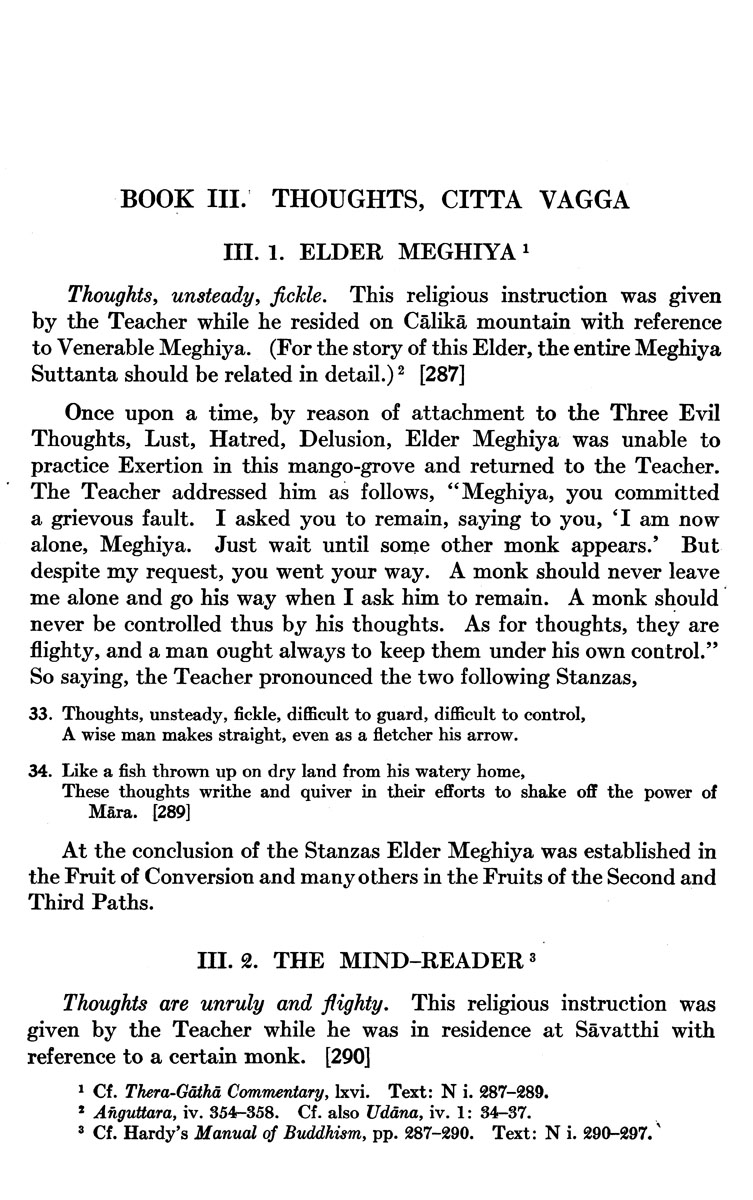BOOK III. THOUGHTS, CITTA VAGGA
HI. 1. ELDER MEGHIYA ^
Thoughts^ unsteady, fickle. This religious instruction was given
by the Teacher while he resided on Calika mountain with reference
to Venerable Meghiya. (For the story of this Elder, the entire Meghiya
Suttanta should be related in detail.) ^ [287]
Once upon a time, by reason of attachment to the Three Evil
Thoughts, Lust, Hatred, Delusion, Elder Meghiya was unable to
practice Exertion in this mango-grove and returned to the Teacher.
The Teacher addressed him as follows, "Meghiya, you committed
a grievous fault. I asked you to remain, saying to you, *I am now-
alone, Meghiya. Just wait until sonie other monk appears.' But
despite my request, you went your way. A monk should never leave
me alone and go his way when I ask him to remain. A monk should
never be controlled thus by his thoughts. As for thoughts, they are
flighty, and a man ought always to keep them under his own control.''
So saying, the Teacher pronounced the two following Stanzas,
33. Thoughts, unsteady, fickle, difficult to guard, difficult to control,
A wise man makes straight, even as a fletcher his arrow.
34. Like a fish thrown up on dry land from his watery home.
These thoughts writhe and quiver in their efforts to shake off the power of
Mara. [289]
At the conclusion of the Stanzas Elder Meghiya was established in
the Fruit of Conversion and many others in the Fruits of the Second and
Third Paths.
HI. 2. THE MIND-READER 3
Thoughts are unruly and flighty. This religious instruction was
given by the Teacher while he was in residence at Savatthi with
reference to a certain monk. [290]
^ Cf. Thera-Gaikd Commentary, kvi. Text: N i. 287-289.
* AhguUara, iv. 354-358. Cf. also Uddna, iv. 1: 34-37.
3 Cf. Hardy's Manual of Buddhism, pp. 287-290. Text: N i. 290-297.'
|








